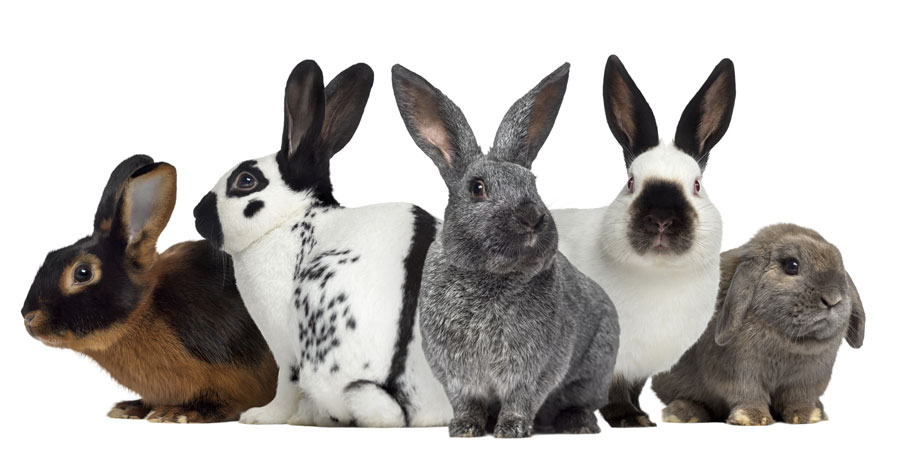Neutering
This is the operation so pets can not reproduce, male or female.
Cats
Neutering cats is slightly different from dogs, partly as cats come into season much more often than dogs and that they are more likely to roam to find a mate. Generally we recommend neutering all cats unless they are in breeding catteries. Female cats can often be mated and pregnant before they wean a litter, so it can be very difficult to stop these cats having repeat litters unless they are spayed by 5 months of age, so we recommend neutering both male and female cats from 4 months of age, before they start to mate.
It is also detrimental to the cat to produce so many litters, as they become sexually active from 4 months of age and can produce several litters a year. These cats often have stunted growth.
The other problems that arise from not neutering cats is an increase in fighting and multiple mating’s; both of which can increase the risk of infections such as Feline Leukaemia Virus and Feline Immunodeficiency Virus, which can’t be treated and will cause fatal diseases.
Feline Leukaemia Virus can be vaccinated against but Feline Immunodeficiency Virus cannot be vaccinated against and reduces the immune system allowing any other infections to become much more serious.
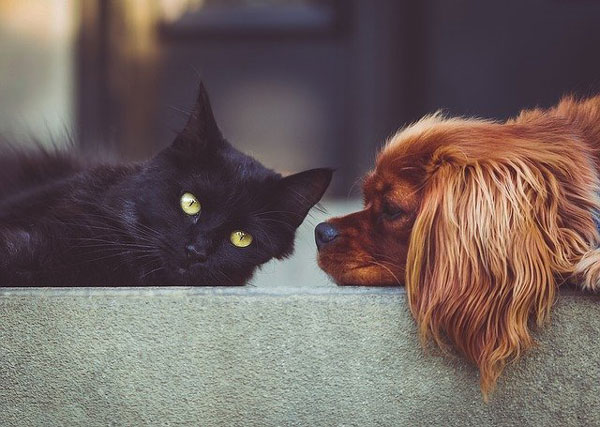
Book an appointment
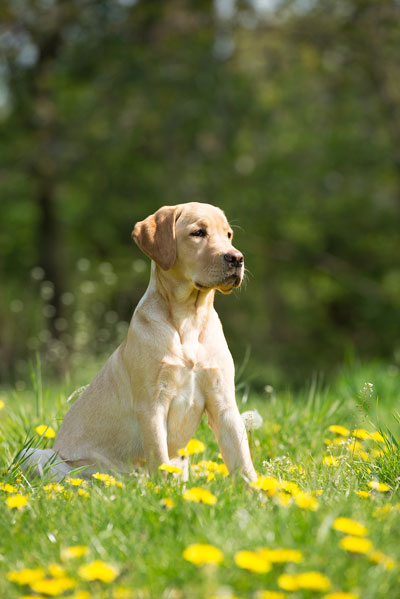
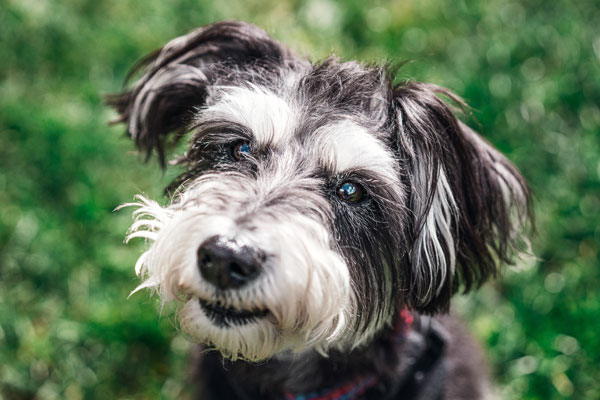
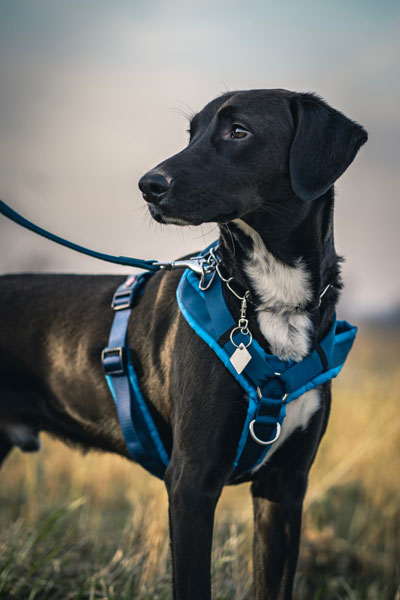
Dogs
Neutering dogs is often the best thing to do for the animals as well as the owner but the timings can vary. It is important to consider all the factors, including whether you would like to breed from your pet and what would be involved in this.
Male Dogs
There are advantages and disadvantage to castrating dogs.
The advantages of castration are;
- Reduces the risk of prostatic disease in older age, testicular cancers and anal adenomas.
- Can reduce aggression.
- Less likely to wander to find bitches in season.
The disadvantages are;
- Minor risk of the operation.
- Can affect the coat of some dogs.
- More prone to weight gain.
Female Dogs
We usually recommend that bitches are spayed from 6 months of age either before their first season or 3 to 4 month after a season to ensure that there are no signs of false pregnancy.
Again there are advantages and disadvantages of spaying bitches.
The advantages of spaying your bitch are; –
- Prevent seasons occurring, so no bleeding and no unwanted attention from male dogs.
- Prevent unwanted pregnancies.
- Reduce the chance of mammary cancer if spayed early.
- Prevent infections of the uterus which usually have to be treated by spaying your bitch when she is ill and will occur in up to 1 in 4 entire bitches.
- Stop false pregnancy signs occurring.
- Prevent vaginal polyps.
- Reduce the risk of Diabetes.
- Helps with the management of epilepsy in some cases.
- Prevent cancer of the ovaries or uterus.
The disadvantages are; –
- Can predispose to urinary incontinence in later life, though this is usually easily treated.
- Can be more prone to weight gain.
- Post-operative risks.
- Can cause changes to the hair coat.
Post-operative risks can be related to bleeding or clotting problems and if there is any history of these in your bitch or her close family, please let us know as we may need to do tests to check before operating. They can also be caused by your bitch being too active etc. straight after the anaesthetic which can start internal bleeding after the operation.
All dogs will vary in their response to the anaesthetic and the operation; some recover very quickly and will need to be stopped from being over active, whereas some are more pain sensitive and may be quiet for several days and may need additional pain relief.
If there is any bleeding from the wound or from the vulva over the following days or weeks please speak to a vet or bring her in for a checkup.
Routine complications-Uncommon
- Irritation around the surgical wound which can be due the dog being able to lick the wound or reaction to the stitches. Some of these will need antibiotic though most settle well especially after the stitches are removed.
- Small amounts/spots of blood from the vagina, can occur days or even a couple weeks after the spay and is not a problem as long as there is not a lot of bleeding.
- Discomfort after the spay, this usually will vary from dog to dog as some appear to be very comfortable whereas some are more sensitive to any pain. All spays are sent home with pain killers but if they are much more sensitive, there is addition pain relief we can use but this is very rarely needed.
- Reaction to internal stitches can occur with some dogs, mostly it causes a reddened spot, in rare cases the stitch reaction can cause swelling of the tissues under the skin which can be difficult to distinguish from stitch breakdowns. These reactions will settle down with either no treatment or a short course of antibiotics.
Rare complications
There is a risk with any anaesthetic though the risk is very small and most spays tend to be younger dogs who have a lower risk.
- Post spay bleed from the wound, this occasionally can be quite a lot of blood from the wound and you bitch will need to be hospitalized to check and observe to make sure there is not an active bleed occurring. Most cases there has been a small bleed into the abdomen after they have been spayed which does not last long but the blood pools in the abdomen and then seeps through the spay wound later. Occasionally some dogs will need to be operated on to ensure that any bleeding has been stopped. These bleeds can occur due to the dogs knocking themselves after the operation, or where small blood vessels have started to bleed after recovery from the anaesthetic when the blood pressure is higher and some dogs bleed because of an underlying blood disorder.
- Post spay bleeding from the vulva which can occur days or weeks post spay and is only a problem if significant bleeding occurs. This is due of ulceration of the cervical blood vessels that are tied off during the operation. It is not known why some blood vessels will ulcerate whereas the majority show no problems. If this occurs we must operate again to tie off the blood vessels.
- Very occasionally severe reaction to the dissolvable internal stitches occurs and the wound in the body wall does not heal causing a hernia under the skin, which would need to be repaired in the future. Overall spaying your bitch is safer than not being spayed and North Park Veterinary Group recommend spaying but each bitch is an individual and should be assessed separately.
Rabbits
Rabbits can breed from 12 weeks of age! It is important to get your rabbits sexed, separated and neutered at a young age. Rabbits are social animals and it is advised not to be kept in singles. Rabbits can be speyed or castrated from four months. Some of the smaller breeds may need to be 6 months before suitable for a general anaesthetic. Your vet will give you the best advice.
